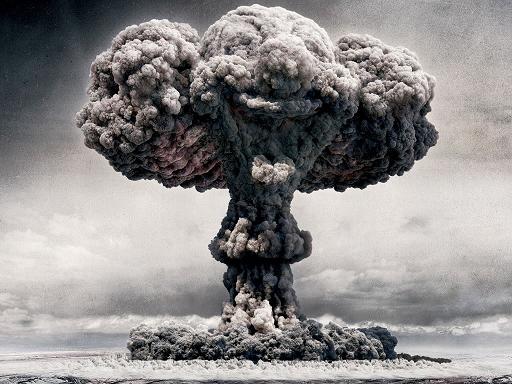At The Dabbler we’re going to be reviewing more of the best new books, both recent publications and imminent ones. Here James Hamilton reviews the Philip Larkin-haunted story of “a man from England’s decaying margins”…
I think we 40-to-60-somethings are unforgetting this now, the way we grew up with the threat of nuclear annihilation. I can crane my neck around and see myself, aged eleven or twelve, awake under the duvet and contemplating the SS-20 and Pershing Cruise, wondering what it was all for, and wondering why everyone couldn’t just go home and get on with their life. It’s easy just to roll current trends on into the future, accumulating, and I did that, all the way to Armageddon. There was no way for me to forsee that as soon as 1989, that “go home” was almost exactly what everyone would do.
And then, as in previous wars, the poor bloody infantry, who on this occasion were us and everybody, did our best to put it all out of our minds. That was the 1990s, and very good some of them were.
But not all of us were able to: Gary Dexter’s debut novel All the Materials for a Midnight Feast (Old Street Publishing, July 2011) is a tour around the damaged mind of Nicholas, a man who became so caught up in the nuclear issue at university in the Thatcher years that he was never able to let it go: we join him aged 48, on an overnight coach to join an anti-nuclear rally at Faslane.
Dexter has a Dabbleresque past, and is responsible for, amongst other things, a Holmes parody called The Oxford Despoiler and a work of non-fiction named Why Not Catch 21? Nicholas, his creation, is at first sight a bit of a Dabbler himself: caught up in minor detail, old fashioned in intent, a man from England’s decaying margins (Hull) for whom the mainstream holds little attraction. The narrative takes the form of his scribbled recollections, put down on paper as the coach (here an example of the malice of inanimate objects) rolls ever so slowly north.
At first, Nicholas’s disjointed, out-of-sequence recollections make relatively little sense, but as they and the journey continue, they come together to build a wholly unexpected and extraordinary psychological picture of a man derailed too early by love and by events. Figures from his past emerge and assemble themselves and the memories gradually restitch. All the while, Philip Larkin, laureate of life’s derailment, waits in the background, increasing in menace through what must be his first appearance as a fictional character. Like Larkin’s Aubade and like Larkin himself, Nicholas’s journey ends with what something hidden from him chose, alone in company on a wet, cold, lonely night.
Although there is more to Nicholas’ eventual plight than just his failure to move on from the issue of nuclear disarmament (is his mental illness part of, or separate from, his obsession with nukes?), Gary Dexter is right to place him as the modern equivalent of that ancient pub figure, the old soldier to whom nothing else has happened since. Like Blimp and his old comrades, Nicholas inspires that mix in the reader of admiration for old battles fought and uneasiness, the wish to back away, and when the novel ends in a abrupt sequence of loop-closing coincidences, it is far too late in the day for them to be hilarious ones.
It’s literature’s job as much as psychology’s to tell the story of what happened to us as in the aftermath of living under the nuclear threat and all the loss of hope, the loss of the future and the cynicism that were its least bad consequences. All the Materials for a Midnight Feast isn’t a cheering novel of the sort older wars could sometimes propagate, but it’s a fine start on what must surely become an important genre as we veterans become old men and remember.











you’ve made it sound very interesting James, Im going to put this on my amazon wishlist
For me, aged under 10 throughout the 80’s, the crowning cultural statement of the cold war was Rocky IV..
I shall continue and thank you once again, Scottish Power, for the 10 second power ‘outage’
Some thought provoking stuff there James, Gary Dexter is right to place him as the modern equivalent of that ancient pub figure, the old soldier to whom nothing else has happened since. Would that be an advantage, have the major mishaps early in life then nothing that follows would seem as bad. In reality however with the perspective of time, we forget just how bad it was.
The deepness of the doo-doos (mega-tonnage wise) only really sank in during the late eighties when I became friendly with a man who used to have an odd job, sitting in a Buccaneer for six hours daily, in a shelter in Germany, with a hydrogen bomb strapped underneath, then I got the message. Not funny man.
Good review, like worm it’s on the list, viva Amazon.
PS, Dabblers wonks, how can a power cut jump a comment into the blogsphere, unasked, spooky.
I used to be one of those guys.
A fine review, James, but I may have to come to it gradually as I still suffer the occasional nightmare from the time of the Cuban missile crisis in 1962. For several nights running I said goodnight to my parents and sister convinced it was for the last time and that we would all be vapourised within hours.
I’d nearly forgotten the day after the night I’d realised we might all be blown to bits: first year of secondary school, walking into third period Chemistry and telling my best friend I was terrified because did he realise…? He, cool as ever, told me to ‘just get used to it’ and I did.
Of course, there are still enough nukes around to blow us all to bits. We just can’t be bothered to worry about them any more.
Nice review, James. The author should be quite grateful as he’s making a few sales off the back of it!